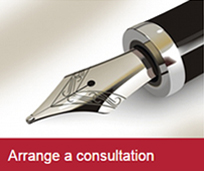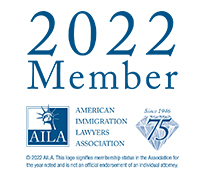Improving Your Life Through Immigration Since 1974
Articles
This page contains articles I have written on immigration-related themes and other articles of interest
Home > Information Bank > Articles
Cross-border Couples Traveling to the United States or Canada
by Andy J. SemotiukU.S. and Canadian Immigration Lawyer, with the assistance of Stefania Sdao.
The purpose of this article is to give you an idea of what to expect when crossing the Canada/United States border to visit your spouse while your permanent resident application is pending. Unless you prepare and present yourself appropriately, it is likely that you will experience delay and questioning at the border. This article will help you avoid needless unpleasantries in that regard.
Firstly, insofar as your permanent resident immigration application is concerned, if you and your spouse plan to submit a spousal sponsorship, it is best to file it as a Consular processing application in which you need to return to your country of origin, as opposed to making an in-land application or an adjustment of status application in the country where you plan to reside. This is because the fact that you will have to return home for a Consular interview to get your permanent papers will demonstrate your intention to return to your country of residence on trips to visit your spouse and therefore make such visits easier for you.
As far as visiting your spouse in the meantime is concerned, it is impossible to prepare you in such a way that you will never have trouble visiting. This is an area of the law that is difficult and always volatile and unpredictable. You need to be prepared to face questioning and uncertainty each time you try to enter your spouse’s country of residence. If you have filed a Consular processing application your chances of success are high, but not certain. There is always the chance you will confront a border official who got up on the wrong side of the bed that day. But the chances are low – maybe 10 percent. There are things you can do to improve your odds of success however.
To start with, you need to demonstrate a clear intention to return to your country of origin. This is what border officials will be looking for - they want to make sure your visit is temporary. The best way to demonstrate this is to show strong ties to your country of origin. “Ties” are aspects of your life that bind you to your country of residence: your possessions, employment, social and family relationships in short: roots in your community.
It is helpful to carry relevant documents that will support your intention to return home. Any document that shows establishment in your community is beneficial: drivers license, health card, library card, bank statements, credit card statements, utility bills…etc. If you do not have these documents, you may want to consider getting them before you travel, as they will come in handy at the border. Make sure that your documents are not contradictory - your address and other personal information should be the same on all of them.
Potential Border Question for Visitors to the United States or Canada
Before you even get to the border, bear in mind if you and your spouse have passports from different countries this will immediately raise a question in the mind of the customs officials and will likely invite further questioning to determine whether or not you intend to return to your home country. One way to avoid the problem is not to travel together, if that makes sense. If you do travel together, be ready for further questioning along the lines outlined below.
Now here are a few potential questions you could face at the border as well as some comments on possible answers that make sense.
Copyright 2011, Andy Semotiuk. All rights reserved
Documents on the topic of cross border wedding or marriage problems:
Firstly, insofar as your permanent resident immigration application is concerned, if you and your spouse plan to submit a spousal sponsorship, it is best to file it as a Consular processing application in which you need to return to your country of origin, as opposed to making an in-land application or an adjustment of status application in the country where you plan to reside. This is because the fact that you will have to return home for a Consular interview to get your permanent papers will demonstrate your intention to return to your country of residence on trips to visit your spouse and therefore make such visits easier for you.
As far as visiting your spouse in the meantime is concerned, it is impossible to prepare you in such a way that you will never have trouble visiting. This is an area of the law that is difficult and always volatile and unpredictable. You need to be prepared to face questioning and uncertainty each time you try to enter your spouse’s country of residence. If you have filed a Consular processing application your chances of success are high, but not certain. There is always the chance you will confront a border official who got up on the wrong side of the bed that day. But the chances are low – maybe 10 percent. There are things you can do to improve your odds of success however.
To start with, you need to demonstrate a clear intention to return to your country of origin. This is what border officials will be looking for - they want to make sure your visit is temporary. The best way to demonstrate this is to show strong ties to your country of origin. “Ties” are aspects of your life that bind you to your country of residence: your possessions, employment, social and family relationships in short: roots in your community.
It is helpful to carry relevant documents that will support your intention to return home. Any document that shows establishment in your community is beneficial: drivers license, health card, library card, bank statements, credit card statements, utility bills…etc. If you do not have these documents, you may want to consider getting them before you travel, as they will come in handy at the border. Make sure that your documents are not contradictory - your address and other personal information should be the same on all of them.
Potential Border Question for Visitors to the United States or Canada
Before you even get to the border, bear in mind if you and your spouse have passports from different countries this will immediately raise a question in the mind of the customs officials and will likely invite further questioning to determine whether or not you intend to return to your home country. One way to avoid the problem is not to travel together, if that makes sense. If you do travel together, be ready for further questioning along the lines outlined below.
Now here are a few potential questions you could face at the border as well as some comments on possible answers that make sense.
- Where are you headed?
- If you are heading to your spouse’s residence, this may invite further questioning. You want to state the city where you are heading without adding anything further.
- What is the purpose of your trip?
- If the purpose of your trip is only to visit your spouse, you will likely face further questioning. The mere hint of the existence of a romantic relationship may excite the suspicions of border officials on the lookout for illegal immigrants planning to stay in the country permanently. You are guilty until proven innocent in this context.
- It is not that it is a sin to visit your spouse or to say that is what you are doing. And it is not that we are trying to deceive. What we are trying to do is make an reasonable effort to provide answers that are honest yet not the kind that invite further inquiry into a fishing expedition.
- This does not mean you should deceive the examiner. In fact you could be barred from entry into the country for three to five years if they find that you are purposefully deceiving them. However, direct answers just stating that you are going to visit your spouse alone, unfortunately, could trigger a series of further questions.
- There are some answers however, that are less troublesome.
- Most people traveling have multiple purposes when visiting their spouse. They may be planning to attend a major event for example or do some touring. If, for example, there is a major event in the location, such as the Olympic games, you may want to state that as your purpose. If you are touring say touring as a tourist. These are honest answers but do not immediately invite unwarranted suspicions about your purpose.
- If you are pressed further, you must answer truthfully and reveal everything, particularly if you are asked to go into secondary inspection i.e. the office to the side where it sometimes feels like you are in a torture chamber strapped to an electric chair, where they turn on the searchlight and do a root canal – just kidding! i.e. where you are asked further questions about your stay in the USA. Your policy in this situation is brutal honesty – spill all the beans – tell them exactly what you are doing and be prepared to sit it out for a few hours with them.
- Where will you be staying?
- If you will be staying with your spouse, you will likely face further questions. If it makes sense, stay in a hotel, with other family or friends.
- How long will you be there?
- It is a good idea to have a pre-determined departure date for your visit, and, if possible, a method of return (i.e. a booked flight). You can stay for a maximum of six months on any trip, but the longer you plan to stay the more questioning there will be. Multiple shorter trips are better than one six month trip. If you just get a stamp in your passport that signals you have been granted up to six months to stay.
- Where do you live?
- Maintaining a permanent residence in your home country will help demonstrate your intention to return home. The documents we mentioned earlier help to establish your credentials in this regard.
- What do you do?
- A letter from your employer indicating that you have taken vacation time, but are expected to return on a specific date is helpful. Not having a job or studying in school are serious deficiencies in asking to visit another country since they imply rootlessness.
- How much money are you bringing with you/Are you
carrying any large amounts of currency with you?
- Carrying large amounts of money may suggest that you do not have plans to return home. If you are carrying more than $ 10,000 you must declare that to customs – so don’t do that.
- Have you ever been denied entry to our country?
- If you have been previously denied entry you will likely face further questioning and investigation. You must admit that you have and have an explanation ready as to what happened.
- Have you even been arrested?
- If you have been arrested before you can expect to face further questioning. Have an explanation ready.
Copyright 2011, Andy Semotiuk. All rights reserved
Documents on the topic of cross border wedding or marriage problems:






